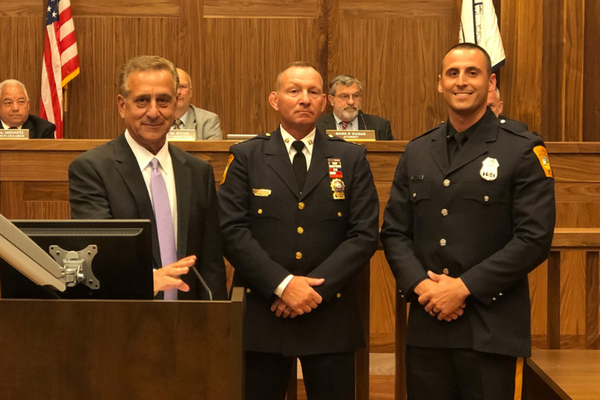
One name that cropped up repeatedly when Julian Assange finally returned home a free man last week was that of David McBride.
“It’s hard to comprehend that as Julian Assange landed in Canberra a free man, David McBride watched from prison. Freedom and respect, not prison and persecution, is what whistleblowers deserve,” tweeted Greens Senator David Shoebridge.
“[W]e cannot forget that David McBride is imprisoned for leaking documents that led to the Afghan Files reporting,” Human Rights Law Centre’s Kieran Pender, who has written repeatedly on McBride for Crikey, tweeted.
“It is a shame on our democracy that the only person to be in prison in relation to Australian war crimes is the person who revealed them,” said longtime Assange lawyer and human rights barrister Jennifer Robinson of McBride.
Except, McBride isn’t a whistleblower and he didn’t want to reveal war crimes, as his trial proved. He leaked documents because he objected to investigations already underway by the ADF of war crimes like the mutilation of Afghan corpses. He tried to tell Australian Federal Police that the ADF was itself committing a crime by investigating such actions. He even objected to the investigation of the killing by Australian soldiers of Afghan children.
McBride is also on the record as saying Ben Roberts-Smith shouldn’t go to jail for war crimes, because “there’s absolutely nothing to be gained by putting our former soldiers in jail”.
Jennifer Robinson spends much of her time abroad and it’s understandable she’s not across such details of McBride’s case or his attitude toward war crimes. Shoebridge and Pender don’t have that excuse. However, they’re all on stronger ground in relation to the fact that McBride is imprisoned. His prison sentence of five years and eight months was wildly excessive.
ACT Supreme Court Justice David Mossop in his sentencing of McBride rejected his lawyers’ submissions that the harm resulting from McBride’s actions was limited, while readily accepting the claims of the Crown. He said McBride’s actions prejudiced future collection of intelligence and the security of ADF operations — a statement so vague as to be nearly impossible to contest.
He also claimed it risked “informing Australia’s adversaries of the limits of the ADF’s use of force. This would give adversaries tactical advantages” — a peculiar rationale given that if Australia’s adversaries weren’t aware the ADF looks askance at actions such as the mutilation of corpses or the killing of children, then there’s something profoundly wrong with Australia’s military culture.
Mossop added that McBride might have prejudiced “policies, capabilities and response times” too, another wholly nebulous claim. Nowhere does the judge point to actual harm resulting from Australians gaining an understanding of the depraved culture that had set in among sections of the ADF in Afghanistan — nor does he think there was anything beneficial in such knowledge. But just because the military was already investigating war crimes does not magically neuter the public benefit of knowing such crimes had occurred.
To view the sentence handed to McBride as egregiously excessive while being critical of his conduct and his alleged status as a whistleblower reflects that Australia’s laws around both whistleblowing and leaking are deeply flawed. The two should be kept distinct, because whistleblowing legally relates to “disclosable conduct” — conduct like breaking the law, perverting the course of justice, deliberate, negligent or unreasonable maladministration or abuse of public trust.
In contrast, leaking (when not used as a tool by the powerful in their interests) relates to revealing not just that kind of conduct but revealing how power is used per se as part of business-as-usual administration — the diplomatic cables leaked to Assange by Chelsea Manning, for example, revealed little “disclosable conduct” but shows how power was used by the US diplomatic apparatus in the interests of US corporations.
Under current law, whistleblowing attracts some limited protections, while leaking is not protected but ferociously punished, no matter how valuable the public benefit arising from it. Leaks about an attempt to extend the power of our foreign intelligence service over Australians led to the raid on journalist Annika Smethurst. Leaks about cost blowouts and delays to the Coalition’s version of the NBN led to raids on the offices of Labor’s Stephen Conroy and the homes of his staff, as well as Parliament House. Leaks of information about offshore processing and Peter Dutton’s au pair scandal led to repeated AFP raids as the Coalition hunted for leakers.
All of those leaks had demonstrable public benefit, as much as or more so than many cases of whistleblowing. None were legal. As the McBride case shows, governments are prepared to go after leakers but less inclined to pursue journalists out of fear of antagonising the media. Julian Assange remains unusual in being targeted not for leaking — that was Chelsea Manning’s fate — but for publishing leaks.
Meanwhile, Labor is considering expanding the inadequate protections for whistleblowers, including around the issue of just how far the protections should extend back from making the actual disclosure that triggers those protections. Which leads to another whistleblower case, that of Richard Boyle.
Tomorrow: Richard Boyle is a legitimate whistleblower — but he should still be prosecuted.
Disclosure: As a WikiLeaks supporter, Bernard Keane visited Julian Assange in the Ecuadorean embassy in London in 2015 and coordinated a letter of support for him in 2011.
Do you view David McBride as a whistleblower in the same vein as Julian Assange? Let us know your thoughts by writing to letters@crikey.com.au. Please include your full name to be considered for publication. We reserve the right to edit for length and clarity.







